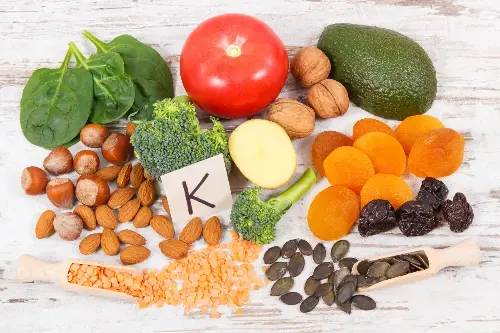Often relegated to the edge of the plate as a dutiful side to main courses, broccoli does not always command the culinary respect it deserves. However, the humble green vegetable is a nutritional powerhouse that plays a vital role in maintaining a healthy lifestyle. From its rich vitamin content to its cancer-fighting properties, broccoli offers an array of health benefits that are hard to ignore.

The Nutritional Profile of Broccoli
Broccoli might not be the flashiest of vegetables, but its nutritional profile is certainly impressive. It is loaded with vitamins, minerals, and bioactive compounds. One cup of chopped broccoli provides as much vitamin C as an orange, making it excellent for the immune system. Additionally, it's a great source of vitamin K, essential for bone health and wound healing, and folate, which is crucial for brain development and function.
This green vegetable also contains high levels of fibre, which is indispensable for digestive health. Diets high in fibre-rich foods like broccoli are associated with a lower risk of developing heart disease, diabetes, and certain types of cancer. It also helps with weight management, as it can make you feel full without contributing an excessive number of calories to your diet.
Broccoli and Antioxidants
Antioxidants are molecules that inhibit or neutralise cell damage caused by free radicals, thereby reducing oxidative stress and potentially lowering the risk of chronic disease. Broccoli is teeming with antioxidants, such as quercetin, kaempferol, and especially glucoraphanin, which is converted into a potent antioxidant called sulforaphane during digestion.
Sulforaphane is of particular interest to researchers because of its potential anti-cancer benefits. Studies suggest that it works by improving the detoxification of airborne toxins and by combatting the harmful effects of free radicals, thus offering a degree of protection against cancers.

Fighting Inflammation with Broccoli
Consuming broccoli may also reduce inflammation, which can be attributed to several bioactive compounds found in the vegetable. In particular, broccoli contains a substance known as indole-3-carbinol, which studies have demonstrated to have anti-inflammatory effects. Chronic inflammation is associated with a risk of developing various conditions, including heart disease and cancer, so integrating anti-inflammatory foods into your diet can have significant benefits.
Broccoli for Heart Health
One of the leading causes of mortality worldwide is heart disease, and diet plays a substantial role in heart health. The high fibre content, potassium, and antioxidants found in broccoli contribute to good cardiovascular condition. Potassium is vital for maintaining healthy blood pressure levels, while the antioxidants and fibre can help to control cholesterol, thus reducing the risk of heart disease.
Enhancing Digestive Health
The fibre content in broccoli supports more than just satiety and weight management; it is also essential for healthy digestion. Fibre helps to keep the digestive system running smoothly by reducing constipation and maintaining the right balance of bacteria in the gut microbiome. A well-functioning digestive system is fundamental to overall health and well-being.
Supporting the Immune System
Thanks to its high vitamin C content, broccoli is a great supporter of the immune system. This vitamin stimulates the production of antibodies and boosts the body's ability to fight off infections. Additionally, broccoli contains minerals like zinc and selenium, which are also known to strengthen immune defense.

Broccoli and Brain Health
Broccoli's wealth of nutrients, including antioxidants and vitamin K, also make it an excellent food for maintaining brain health. Vitamin K is particularly known for its role in forming sphingolipids, a type of fat that's densely packed into brain cells. Emerging research links a higher intake of vitamin K with better cognitive status and mental function.
Broccoli for Healthy Vision
The carotenoids lutein and zeaxanthin are to thank for broccoli's positive effects on eye health. These substances are both linked to a decreased risk of age-related eye disorders such as cataracts and macular degeneration. They help protect the retina from oxidative damage, which could lead to these common vision problems.
Easy to Incorporate into Your Diet
Beyond its strong nutritional profile, broccoli is also incredibly versatile and easy to incorporate into a healthy diet. It can be enjoyed raw in salads, steamed as a side dish, roasted to bring out its nutty flavour, or blended into soups and sauces.
Broccoli's benefits are numerous and its detractions few, making it a vegetable that genuinely deserves a spot on your plate on a regular basis. With its potential to combat various health conditions and contribute to overall wellbeing, it's clear to see why this cruciferous vegetable should step into the limelight. So next time you plan your meals, consider the brilliant benefits of adding broccoli to your culinary repertoire. Whether you aim to safeguard your heart, bolster your immune system or simply maintain your vitality, this verdant green veg can be a valuable and delicious ally on your plate.
